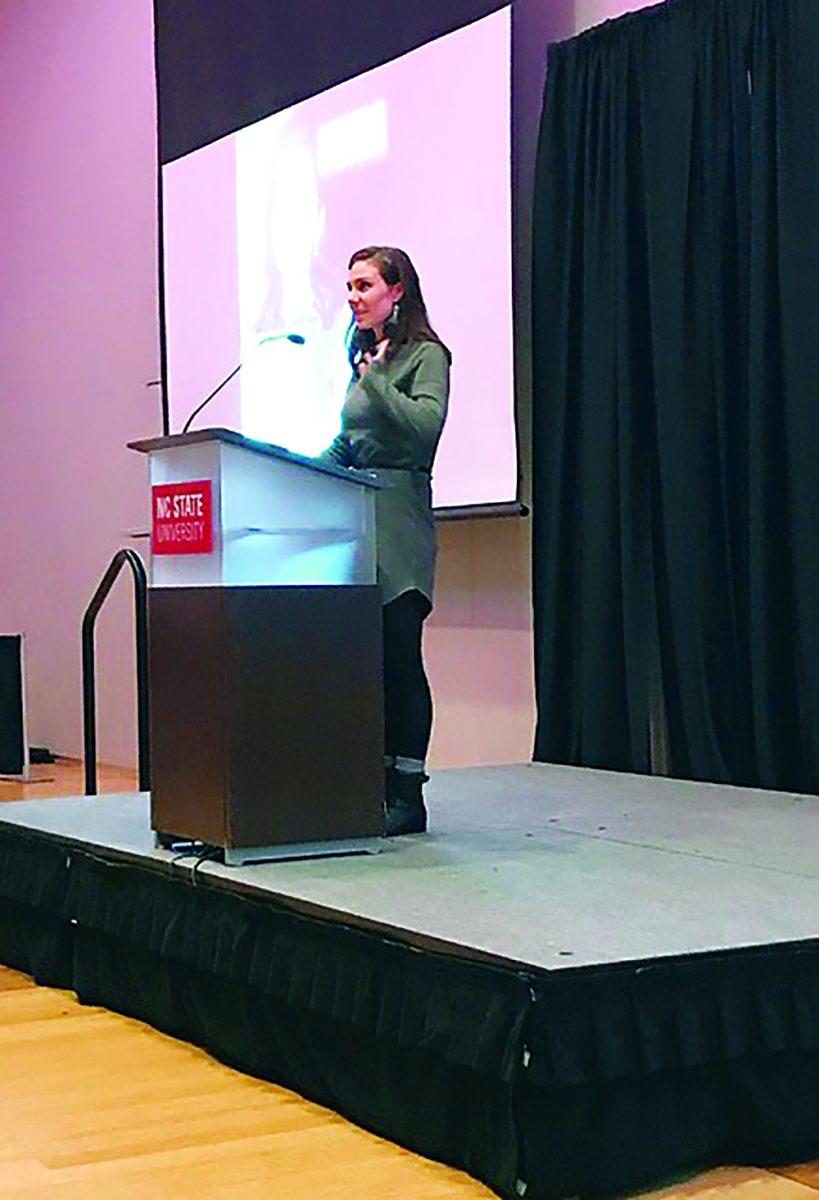The art of storytelling is not one easily mastered. From maintaining a clear authorial voice to crafting truly dynamic characters, fiction authors are perhaps some of the most skilled artists when it comes to painting a compelling world not easily forgotten. The literary community that exists at NC State works to unite writers of all skill levels, educational backgrounds and genres in a way that creates a homey niche for the creative writers, and readers, that exist at NC State and beyond. The 2017 NC State Fiction Contest Awards and corresponding literary reading took place on Wednesday evening in Talley Student Union and — once again — celebrated creativity, originality and, most of all, fiction.
After receiving hundreds of submissions from North Carolina residents from all over the state, the NC State faculty members blindly read over submissions and selected finalists for each category, before sending selected works to this year’s fiction contest judge and renowned fiction author, Tania James. James’ recently published novel “The Tusk that Did the Damage,” has gained national recognition, and deeming her an attractive choice for this year’s fiction contest judge. Belle Boggs, assistant professor in the Department of English and director of the Masters of Fine Arts in fiction program, echoes this idea.
“It’s surprising and risk taking,” Boggs said. “This is a novel that looks at the ivory trade in India and alternately, through the eyes of a poacher, a documentary filmmaker and an elephant. So the fact that she can write from the perspective of an animal, convincingly, and write this audacious novel is something that I know our students who are also risk takers in their work will learn from.”
The statewide contest gives out two main awards each year: the James Hurst for Fiction, the Shorter Fiction Prize, along with several honorable mentions for each category. The James B. Hunt Prize for Fiction awards a well-deserving fiction writer with a hefty $500 for a story no more than 5,000 words, and the Shorter Fiction Prize awards a second well-deserving fiction writer with $250 for a story no more than 1,200 words. Additionally, the best NC State undergraduate entry is awarded $100.
This year’s winners included Taylor Sykes, a second-year in the M.F.A. fiction program who won the James Hurst Prize for Fiction for her piece “Creeper,” and Jen Julian, from Supply, N.C., who won the Shorter Fiction Prize for her piece “Attachment.”
As the judges read submissions among submissions each year, Boggs shares what makes a winning story stand out.
“We look for craft,” Boggs said. “We like stories that are beautifully written, and that are attentive to structure and character and setting, and all of the things we talk about in our creative writing classes. But we also look for stories that surprise us, and that show us a world that we haven’t seen before.”
After the contest winners were announced, Tania James was welcomed to the stage with a warm applause that filled the room. James began by reading from a short story which is still in the works, “Medusa,” a refreshing take on the very real issue of female oppression which still proves relevant today.
“I wrote this story some months before the Weinstein scandal came out, but I was definitely thinking of female rage, particularly female rage through the Greek myth, which is the Medusa,” James said.
The story skillfully blended modern elements with the classical elements of Greek mythology, referencing everything from bath bombs to “spooning” to snakes. It was the last line of the story, however, that stood out amongst the rest, bringing the narrative together in a way that left a mark.
“Everyone has stories to tell about the girls they’ve once been — bright, impulsive, sexy, dangerous — and when it was her turn to tell, she always said with a hint of pride, ‘oh me, I had a temper.’”
Next, James read from another short story, “The Liberator,” a witty tale about a man that got hit by a car and the drama that unfolded as a result. While “The Liberator” also featured many modern elements, referencing Instagram and Camaros, the short story remained deeply layered.
As with all literary reading series, students and attendees were able to ask James questions after the reading during the Q&A portion of the evening. Boggs said this is often her favorite part of the night, and the author’s as well. On Wednesday, several students posed questions related to James’ writing process and techniques, and the well-known fiction author eagerly shared her wisdom. Surprisingly enough, James shared that she originally was studying economics in college, before realizing that she hated it and decided to follow her dream instead. James encouraged students to do the same.
“I think that if you really love something and want to do it, you’ll find a way,” James said.













